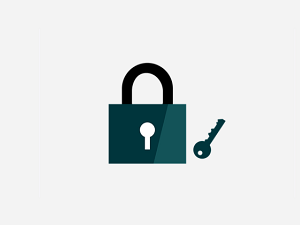Security
Malicious SEO Campaign Affects Thousands of Sites
In a massive malicious SEO campaign, cybercriminals are promoting low-quality Q&A sites by redirecting visitors to fake discussion forums. As a result, almost 15,000 sites have been compromised.
In September 2022, researchers at Sucuri discovered the attacks. Each compromised site was found to contain approximately 20,000 files that were utilized in the search engine campaign.
Read MoreWordPress Plugin Leaves Sites Vulnerable
Researchers at Defiant authored the popular Wordfence security solution for WordPress users and they have detected a massive campaign that has seen hackers actively scanning for websites employing the Kaswara Modern WPBakery Page Builder plugin.
The plugin was recently abandoned by the creative team behind it before receiving a patch for a critical security flaw.
Read MoreUpgrade This WordPress Plugin To Avoid Being Hacked
Do you own and manage a WordPress site either personally or as part of your business? Do you also use the Tatsu plugin which offers a powerful suite of in-browser editing features and has been installed by more than 100,000 users worldwide?
If so, be aware that there is a serious security flaw in the plugin, and you should update right away to minimize your risk.
Read MoreUpdate Now If You Run This WordPress Plugin
Millions of people around the world have leveraged the awesome power of WordPress to build their sites. Whether for personal or business use, WordPress has the flexibility and functionality to create just about any type of site you can dream of.
A large part of this flexibility comes from the power of plugins, but that’s the problem. With thousands of plugins available, there are lots of opportunities for hackers.
Read MoreUpdate This WordPress Plugin Immediately To Prevent Security Risks
Do you have a WordPress site? Do you use the PHP Everywhere plugin?
If so, you’re not alone. More than 30,000 site owners have installed it. It’s an excellent plugin that dramatically enhances websites using it, because it allows webmasters to place PHP pretty much anywhere on the page to display dynamic web content.
Read MoreThis Plugin Could Put Your WordPress Site At Risk
The WP HTML Mail plugin has been installed on more than 20,000 websites. If you’ve built a WordPress site for your business and you use that plugin, be aware that you are at risk. A high severity security flaw was recently discovered in the plugin that could allow an attacker to perform a code injection style attack that allows the attacker to send phishing emails to the site’s registered users.
Read MoreUpdate Your All In One SEO Plugin For Security Patch
Do you own and operate a WordPress website? Do you also use the “All in One” SEO plugin?
If you answered yes to both of those questions, then be aware that you’ll want to update that plugin as soon as possible.
Recently security researcher Marc Montpas from Automattic Security discovered and reported a pair of critical security flaws.
These flaws put any website using the non-upgraded version of that plugin at risk.
Read MoreEnd To End Encryption Comes To Microsoft Teams
In a bid to further bolster security Microsoft has recently announced the roll-out of end to end encryption for one to one Microsoft Teams calls. Teams already encrypts user data both in transit and at rest and it allows IT admins to establish automatic transcription and recording of all video calls.
Read MoreHackers Turn To New Trick Called SEO Poisoning
Hackers have a new tool in their toolbox you should be aware of. Called SEO Poisoning or sometimes “search poisoning” the attack relies on Black Hat SEO techniques to optimize web content.
Researchers from Menlo Security have spotted two separate campaigns one linked to the SolarMarker backdoor and the other leveraging REvil ransomware to infect unsuspecting netizins.
Here’s how the attacks work…
Read MoreMicrosoft Edge Browser Getting Automatic HTTPS Web Security Feature
The latest version of Microsoft’s new Chromium-based Edge browser will follow in the footsteps of the other major browsers on the web.
As of Edge 92, the browser will automatically switch users to a secure HTTPS connection when visiting an HTTP address, provided that the browser enables the Automatic HTTPS feature.
It’s a good move that’s been in the company’s development channel for some time, but it was only very recently that the company finalized and announced an official roll out date.
Read More









